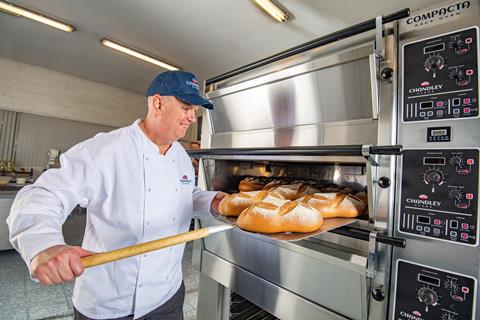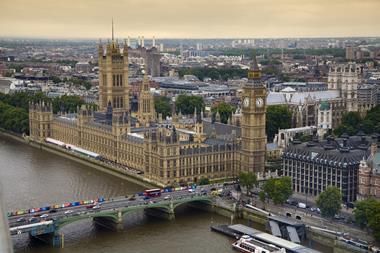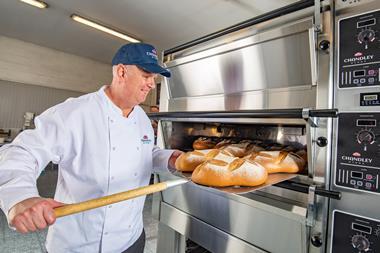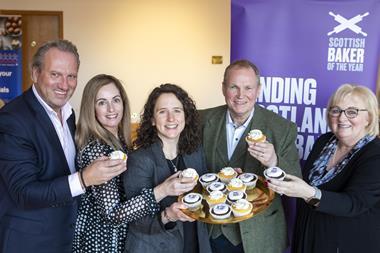
Labour’s Autumn Budget has garnered mixed reactions from trade bodies in the food manufacturing and bakery retail sectors.
Concerns over wage increases were already being “continually raised” when the new government took office in July. Chancellor Rachel Reeves’ announcement on 30 October of further increases including to National Insurance contributions left some associations “profoundly disappointed”, noting that it poses “significant challenges” for many of their members with a “burden laid on industry”.
However, another welcomed the focus on a “consistent, long-term approach to tax and regulation”.
Following on from detailing the impact of some of the key changes on various bakery firms, here’s responses to the UK Budget collated from trade body organisations:

Andrew Pyne, chief executive, Federation of Bakers
“Continued investment in the bakery sector (one of the UK’s largest food manufacturing sectors) is key to the UK’s food security and critical for delivering the nation’s daily bread.
While we support the Government’s commitment to invest in fundamental areas like the NHS, the budget delivers a disappointing result for our industry. The tax rises through Employer National Insurance contributions see a burden laid on industry – which for a sector like bakery, employing tens of thousands of people, will mean an additional rise in business costs. This will ultimately impact opportunities for future investment and growth, reduce resilience, and impact the costs to consumers, making food price inflation an ongoing issue.
We will continue our dialogue with Government to secure investment to make our industry fundamentally stronger and more resilient – all whilst continuing to deliver the nation’s daily bread.”

Karen Dear, chief executive, Craft Bakers Association
“The CBA is profoundly disappointed with the Chancellor’s budget announcement, which underscores a troubling lack of attention to the needs of small businesses and employers. The craft baking industry, as a responsible employer, is committed to rewarding its employees and maintaining sustainable wage levels. However, the government’s failure to acknowledge the implications of a 6.7% wage increase, through the National Living Wage, coupled with a staggering 16.3% increase for employees aged 18 to 21, presents an untenable challenge for the craft baking industry.
Additionally, the rise in National Insurance contributions from 13.8% to 15%, along with the reduction of the threshold for National Insurance payments from £9,100 to £5,000, will significantly increase operational costs for business owners. These changes threaten to result in job losses and, in some cases, business closures.
The reduction of business rates relief from 75% to 40% and the proposed changes to employment rights further illustrate a lack of understanding of the vital role small businesses play in our communities.
Bakery businesses are essential for maintaining vibrant high streets and local employment. Unfortunately, the increasing financial burdens imposed by this budget will diminish their capacity to contribute to our daily lives, leaving communities without essential hubs of activity.
Furthermore, the new restrictions on Agricultural Property Relief (APR) and Business Property Relief (BPR), which will be limited to a combined cap of £1 million starting in April 2026, with only 50% relief available thereafter, will significantly affect many of our members and the producers they collaborate with. Additionally, the effective inheritance tax rate of 20% on AIM shares, coupled with the limited 50% relief, further exacerbates the challenges faced by all stakeholders in our industry.
While we acknowledge the increase in the Employment Allowance from £5,000 to £10,500 for smaller businesses, which will provide some relief from the National Insurance increase, it is clear that this budget fails to adequately support the small business sector.
The CBA will be meeting with the Department of Business and Trade and Defra later in November to ask that the government reconsider its approach and engage in meaningful dialogue with the Craft Bakers Association.”

Lesley Cameron, chief executive, Scottish Bakers
“[The] budget announcement poses significant challenges for Scotland’s bakery sector. We are pleased that many of the smaller businesses that make up our sector will be protected from the National Insurance rise because of the decision to double the employment allowance.
However, the increase in Employer NI contributions for larger businesses adds a substantial financial burden on top of already escalating costs. Rising prices of raw materials, such as butter and other essential ingredients, are already impacting profit margins. The compounded expenses for these bakeries, that are integral to our local communities and economy, will make them more vulnerable and less able to invest.
Such an outcome would hamper the Scottish Government’s strategy for economic growth. We urge Scottish policymakers to recognise the unique pressures faced by the bakery sector and place this at the heart when making devolved policy decisions, particularly around rates relief and support for training and automation. Supporting the diversity of bakeries we have in Scotland is essential not only for preserving jobs, but also for maintaining the economic and social impact of our sector.”

Jim Bligh, director of corporate affairs and packaging, Food & Drink Federation
“Driving investment and growth is critical to ensuring the continued success of the UK’s largest manufacturing sector and protecting the nation’s food security. So, we welcome the Chancellor’s focus on a consistent, long-term approach to tax and regulation, which should help unleash the growth potential of the food and drink manufacturing industry’s 12,500 businesses.
“As a critical advanced manufacturing sector, we stand ready to work with government to make the most of this support. Boosting investment in R&D will help the industry to create jobs, drive innovation, and grow export opportunities – resulting in a stronger industry that underpins the nation’s food security.”

Tech adoption programme expanded
As part of its Autumn Budget announcement, the government is to spend £16m on expanding its Made Smarter Adoption programme to all nine English regions in 2025/26.
The decision will mean hundreds of thousands more SME manufacturers (including bakeries) will get access to technology advice, leadership, and skills training, as well as grant funding for digital internships and technology projects. These interventions will boost productivity, growth, create new high value jobs, and decarbonise SME manufacturers across the country, noted Made Smarter.
The programme was launched in the Northwest in 2019 and subsequently extended to the Northeast, Yorkshire and the Humber, the West Midlands and East Midlands. It has engaged with 2,500 manufacturers and funded 379 tech projects to date – Studio Bakery and Chandley Ovens being two recent examples. Such investments in technology and people are said to be helping to grow the economy by £267m over the next three years.
“The programme has proven that by offering businesses specialist advice to help them select the right approach, level of investment and tools for their business, they can grow and build resilience,” commented Donna Edwards, director of Made Smarter’s Northwest adoption programme.
“I am delighted that the Government recognised the impact that Made Smarter is having on the digital transformation of such a vital sector of the economy. While we await further details on the funding package, the commitment to a national roll-out is a major positive to emerge from a Budget which promises to rebuild Britain and puts UK Industry at the heart of that change,” she added.
































No comments yet